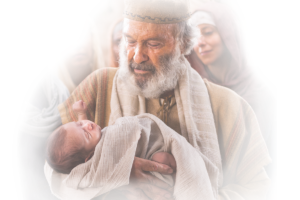 Solemnity of the Birthday of John the Baptist
Solemnity of the Birthday of John the Baptist
24 June
This Sunday is the Solemnity of the Birthday of John the Baptist. Being a solemnity, it replaces the liturgy of the 12th Sunday in Ordinary Time. Usually, feast days of saints mark their death anniversary, rarely do we celebrate their birthdays. John the Baptist is the only saint besides the Blessed Virgin whose birthday is celebrated in addition to his martyrdom. And John the Baptist also gets mentioned much during the season of Advent. The liturgy of today gives me many thoughts, I would highlight two of them.
His name will be John
The major focus of the gospel text of today revolves around the naming ceremony of the John the Baptist. What’s in a name? Why the fuss around his name? In most cultures names are chosen very carefully. In some cultures, even the first names are inherited in a systematic way. Among the Bantu people for instance, the first boy of the family would be named after his paternal grandfather; the first girl would be named after her paternal grandmother; the second boy will be named after the maternal grandfather; and the second girl will be named after her maternal grandmother. There is a clear pecking order in the naming using also the names of uncles and aunties. The relationship between the parents and the child is sometimes affected by the nature of the relationship between them and the one the child is named after. The name takes on a personality.
It is not by chance then that in some languages, as it is in Swahili, name is not an object or just a label, but a person – an animated subject. So, in Swahili, you don’t ask, “What is your name?”, but, “Who is your name? – Jina lako ni nani?” In the Hebrew culture too, names had deep significance. You could recall the conversation between Moses and Yahweh about the name of God. Even today, some of the Jewish scholars, such as my professor Kate Loewenthal, writing in English would use the form G-D, whenever they have refer to God. Such deep reverence for the name/title for God! Similarly, in the Hebrew scriptures, most often when the birth of a child is foretold, the child is already given a name. The name already indicates the nature and the mission of that child.
‘John’ means ‘Yahweh has been gracious’. And the boy has to be given this name as a statement from Zachariah and Elizabeth acknowledging the wonderful way God has worked in their lives. Yahweh has been gracious! It is when Zachariah will recognise that God has been gracious, that his period of silent contemplation would end. Since the annunciation of the angel to him at the temple, he has been contemplating the meaning of the question he asked: “How will I know that this is going to happen?” Perhaps now his wonder is no more focused on knowing how God works, but just wondering that God works: yes, Yahweh has been gracious!
The child grew up
What did this name mean for John the Baptist? When Zachariah begins to speak, his first words are, “Blessed be the Lord…” And in that hymn (which the gospel text today skips), he also interprets what the name could mean for the child: “And you, little child … you will go before the Lord to prepare a way for him, to give his people knowledge of salvation through the forgiveness of their sins” (Lk 1:76-77). The name foretells the mission of John that he will proclaim that God has been gracious in visiting us in the person of Jesus. And the gospel text of today concludes, “Meanwhile the child grew up and his spirit matured. And he lived out in the wilderness until the day he appeared openly to Israel” (Lk 1:80).
John the Baptist had a right understanding of his role in history. Even before his birth, and in his life and death he went on to live the mission for which he was born on the face of the earth. When John was born what his father prophesied, is exactly what John the Baptist went on to fulfil in his life. When Jesus would appear on the scene he would point out Jesus as the Lamb of God (Jn 1:36), and agrees to exit (Jn 3:30). Even though his life would end in an untimely death (Mt 14:1-12), that death itself was in fulfilment of why he was born on the face of the earth.
The greatest challenge in our own life is in finding our space in the universe. We call this, ‘Will of God’. I would call it, the dream that God has for us. God created us in a unique way for a unique purpose. God has been gracious to us. There is a unique space in the universe for each one of us. If I do not fill that space I would leave a vacuum in the history of the universe. On the other hand, our own happiness and wellbeing consists in finding that space and meaningfully filling it. Often in our prayers we ask God to give us this and to give us that. Essentially, we need to listen to God – listen to his dreams for us. When our desire meets with the desire that God has for us, it is like the whole universe moves for us. We experience fulfilment, gratification and wellbeing. Yes, God is gracious to us.
Sahaya G. Selvam, sdb